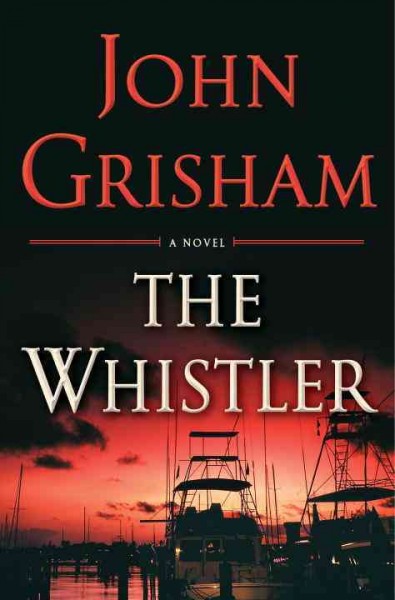By Jim Ewing. Special to The Clarion-Ledger
 Novelist John Grisham keeps churning out winners that manage to wrap social issues, the law, and intriguing characters into an explosive mix, with his latest, The Whistler, sure to be a controversial bestseller like many before.
Novelist John Grisham keeps churning out winners that manage to wrap social issues, the law, and intriguing characters into an explosive mix, with his latest, The Whistler, sure to be a controversial bestseller like many before.
Avid readers may recall his previous “issue” book Gray Mountain (2014) served as much to bring attention to the rapacious practices of coal mining destroying families, communities, and the environment, as it did to simply tell a gripping yarn.
The Whistler carries on that social issue imperative, following his previous more typical lawyer tale Rogue Lawyer (2015), by taking on casino gambling on American Indian reservations.
The locale is Florida, with its rich history of corruption. The culprits are a shadowy band of Southern criminals called The Catfish Mafia, which funds its web of lucrative, money-laundering strip malls, golf courses, gated communities, and condos with a crooked casino it helped found on an Indian reservation through murder and intimidation. The scheme relies on a circuit court judge all too willing to take bribes.
Enter a single woman lawyer named Lacy, mid-thirties, worried about the ticking of her biological clock, working for the sedate and respectable, if not boring, state Board on Judicial Conduct. She is suddenly thrust into the heart of the corruption and violence by a whistleblower.
The result is a masterpiece of criminal enterprise exposed in a methodical page-turner made all the more evocative for its subject matter. Tightly written, well crafted, the novel moves at a fast pace with whiplash plot twists.
The controversial aspect of “Whistler” is the unique nature of casino gambling as practiced on Indian reservations. Grisham portrays the tribe as being split initially on whether to allow gaming; some wanting the cash it would provide to bring them out of poverty; others worried that it would morally destroy the community. Both prove true.
Once the casino is up and running, many in the tribe suspect that corruption is taking place but are intimidated into silence by the fact that each member of the tribe profits to the tune of a check for $5,000 per month. The casino’s wealth has also provided good schools, roads, a health clinic, and jobs.
It provides an ethical dilemma: blow the whistle and risk losing everything–or look the other way and allow corruption, intimidation, even violence to flourish.
Grisham weaves his storyline through both the emotional and psychological aspects of this dilemma. He deftly describes the laws that govern tribes and casinos and how they as sovereign nations under treaty are — and aren’t — subject to judicial review or criminal restraint.
As a consequence, The Whistler provides not only a good read but serves to educate and provide plenty of fodder for discussion.
The Whistler yet again reveals Grisham as a premier mystery writer.
Jim Ewing, a former writer and editor at The Clarion-Ledger, is the author of seven books including his latest, Redefining Manhood: A Guide for Men and Those Who Love Them.


Comments are closed.